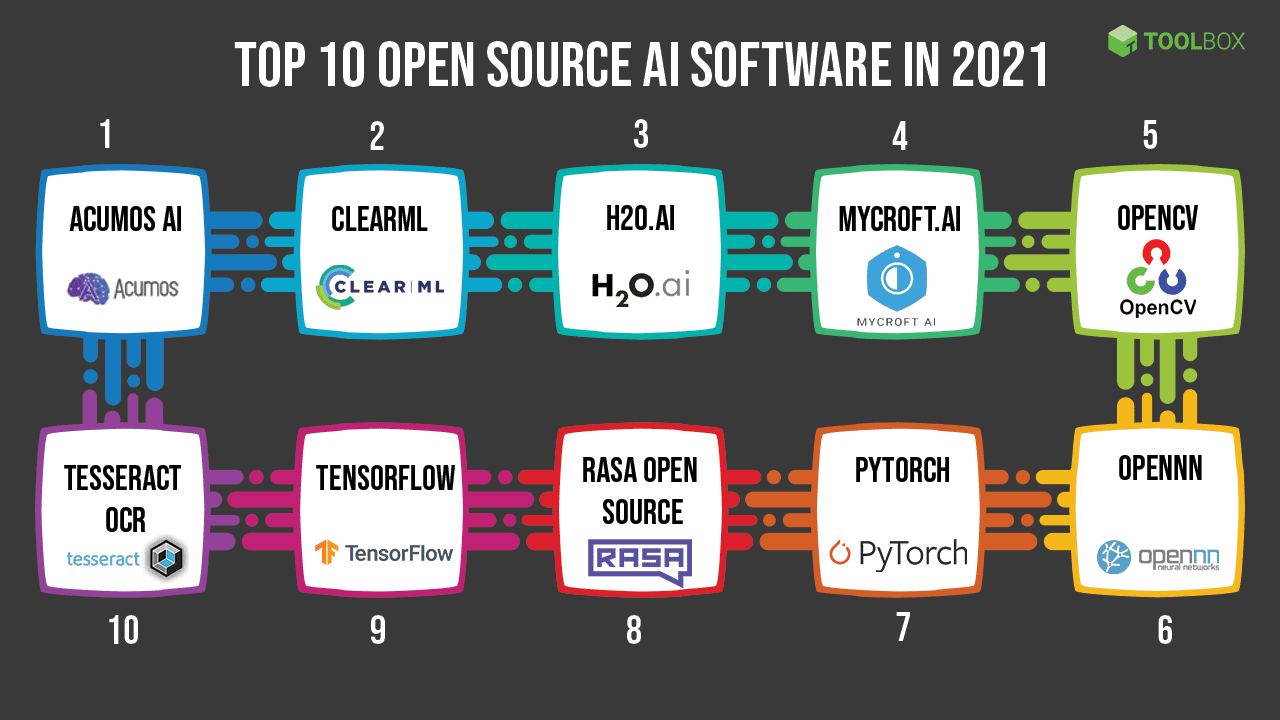AI is transforming the way businesses operate, enabling them to reduce costs, increase efficiency, and improve customer experiences. In this article, we explored the top 10 AI applications businesses are using today: automation, customer service, sales and marketing, fraud detection, quality control, supply chain optimization, predictive maintenance, natural language processing, cybersecurity, and human resource management. These applications have become critical for companies that want to stay ahead of the competition. By harnessing the power of AI, businesses can analyze vast amounts of data in real-time, streamline processes, and free up employees to focus on more complex tasks. AI is not just a buzzword – it is a game-changer for businesses looking to succeed in today’s data-driven economy.
The Top 10 AI Applications Used in Business Today
Artificial Intelligence or AI has been making waves in the business world, and for good reasons. AI offers solutions to many of the challenges businesses face today, such as reducing costs, increasing efficiency, and improving customer experiences. With the help of machine learning, businesses can now analyze vast amounts of data in real-time, making them more agile and responsive to changing market conditions.
In this article, we will take a closer look at the top 10 AI applications that businesses are using today. These applications have become critical for companies looking to stay ahead of their competition by harnessing the power of AI.
1. Automation
Automation has been one of the most significant AI applications for businesses worldwide. It involves incorporating AI into existing workflows, enabling machines to take over repetitive manual tasks previously performed by humans. Some of these tasks include data entry, answering customer inquiries, and even simple decision-making processes.
Automation has the potential to streamline business processes, reducing errors and increasing efficiency. This translates to significant cost savings while freeing up employees to focus on more complex tasks.
2. Customer Service
AI is increasingly being used to improve customer service. AI-powered chatbots, for example, can understand and respond to customer queries in real-time, freeing up customer service personnel. Additionally, AI-powered customer insights provide companies with new ways to understand their customers better. By analyzing data such as social media activity and purchase history, businesses can personalize products and services to cater to specific customer needs and preferences.
3. Sales and Marketing
AI can help businesses with sales and marketing efforts. AI tools can analyze customer data and predict which products they are most likely to buy. This allows businesses to create targeted marketing campaigns that increase the likelihood of a sale.
AI can also help businesses monitor brand sentiment by analyzing social media activity and other online channels. This enables companies to respond quickly to negative reviews or comments before they go viral, potentially causing significant damage to the brand.
4. Fraud Detection
AI can help businesses detect fraudulent activity. By applying machine learning to analyze transaction data, businesses can build models that detect unusual behavior patterns that might indicate fraud. This significantly reduces the frequency of fraud instances while also saving companies from potential financial losses.
5. Quality Control
AI can be used to improve product quality control by automating critical quality checks. By applying machine learning algorithms to identify defects during the manufacturing process, businesses can reduce the number of faulty products that reach end-users. This improves customer satisfaction while also reducing the cost of recalls and reputational damage.
6. Supply Chain Optimization
AI can be applied in optimizing supply chain management. By analyzing data from various sources, including suppliers, transportation companies, and warehouses, AI algorithms can develop models that minimize supply chain disruptions, reduce inventory costs, and improve delivery times.
7. Predictive Maintenance
AI can be used in predictive maintenance by monitoring machines in real-time and detecting potential problems before they occur. This enables companies to avoid costly downtime and repairs while increasing the lifespan of the machines.
8. Natural Language Processing
Natural Language Processing (NLP) is an AI application that can help businesses automate complex tasks that require human-like communication skills. For example, NLP can be used to create chatbots that can communicate with customers in natural language, understand their needs, and offer personalized recommendations.
9. Cybersecurity
AI is increasingly being used to tackle cybersecurity challenges. Machine learning algorithms can analyze vast amounts of data to detect potential cyber threats, such as malicious software or phishing attacks. This reduces the risks of data breaches, saving businesses from potential financial and reputational losses.
10. Human Resource Management
AI-powered talent management tools can help businesses streamline their human resource processes, such as recruiting, screening, and performance management. AI can also be used to analyze employee data, enabling HR teams to identify potential issues and take proactive steps to improve employee engagement and retention.
Conclusion
As AI continues to evolve, more businesses are looking at AI applications to solve various business challenges. By using AI to automate repetitive tasks, analyze customer data, and optimize business processes, businesses can remain competitive and agile in today’s fast-paced, data-driven environment. These top 10 AI applications are just a glimpse of what AI can do for businesses today, and the possibilities are endless.
